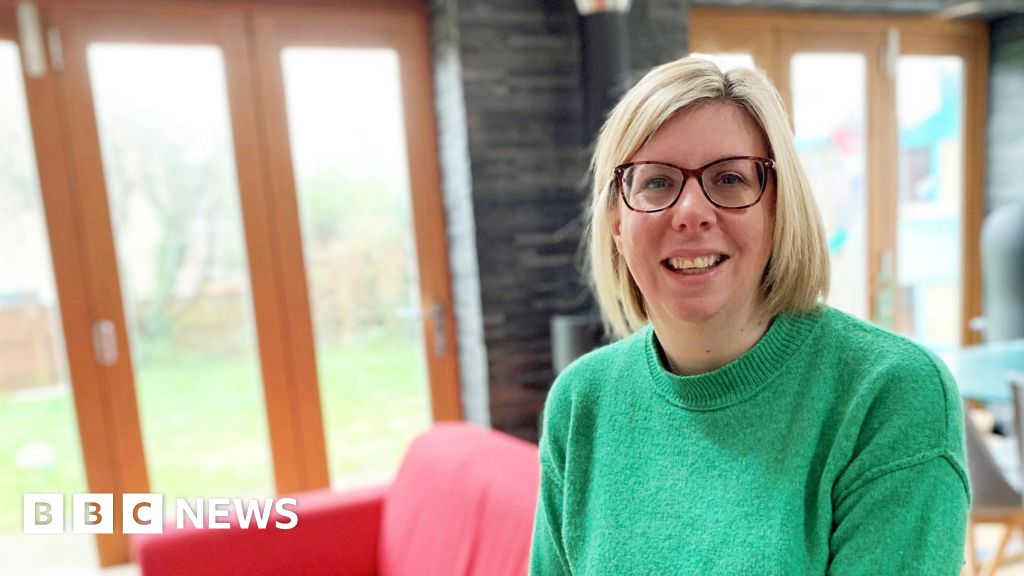Melissa Broad suffered a stroke aged 29 and felt “abandoned” as she recovered
- Author, Garry Owen
- Role, BBC news
Stroke survivors need more support with their mental health, charities have said.
Many of the 70,000-plus people in Wales who have had a stroke also experience depression or anxiety as they recover, the Stroke Association and Mind Cymru said.
Melissa Broad, who had a stroke in 2011 when she was 29, said she felt “abandoned – there was no mention of the impact on your mental health”.
The Welsh government said it was aware of the issue and was working with organisations including the Stroke Association to provide support.
In a joint report, the charities said there was very little specialist support to help people with their mental health after a stroke.
A Stroke Association survey found that about three-quarters of stroke survivors experience at least one mental health problem, but only 3% got support when they needed it the most.
Ms Broad, from Creigiau in Cardiff, had a stroke three weeks after giving birth to her son Ellis.
Upon leaving hospital, she could not read, write or speak, her memory was affected and she began to struggle with her mental health.
“I used to have chalk board all over the kitchen to help me remember simple things like dates or birthdays and struggled to retain information,” she said.
“It was really tough time. The anxiety was bad. I didn’t want to leave the house.
“I couldn’t pop to the shop because I couldn’t ask questions and couldn’t speak.”
Despite being told she would not be able to have any more children, Ms Broad went on to have two daughters – Mari and Heti.
Looking back, she said she “abandoned” in terms of her mental health.
“It needs to be highlighted when you leave hospital that a stroke could have an impact on your mental health and you should be given support,” she said.
“Your whole life changes with a stroke and to have no help puts you in a spiral – suitable support would stop things from progressing to a worse place further down the line.”
Image source, Melissa Broad
Melissa Broad said doctors should have advised her of the impact of a stroke on her mental health
The Stroke Association said it offered to those worst affected by a stroke, but there was a gap for people struggling with mild to moderate depression or anxiety.
In their joint report, Stroke Association and Mind Cymru called on the NHS and social services “to work with us to ensure that people affected by stroke receive quality, timely support for their mental health and wellbeing”.
“We urge GPs, health boards and clinical staff across the NHS to recognise that identifying and managing mental health issues post-stroke are an essential part of clinical rehabilitation and long-term stroke recovery.”
The Welsh government said it was working with several organisations to “support peoples’ recovery following a stroke”.
It added: “This includes access to cognitive and psychological support services.”

Sarah Carter is a health and wellness expert residing in the UK. With a background in healthcare, she offers evidence-based advice on fitness, nutrition, and mental well-being, promoting healthier living for readers.








